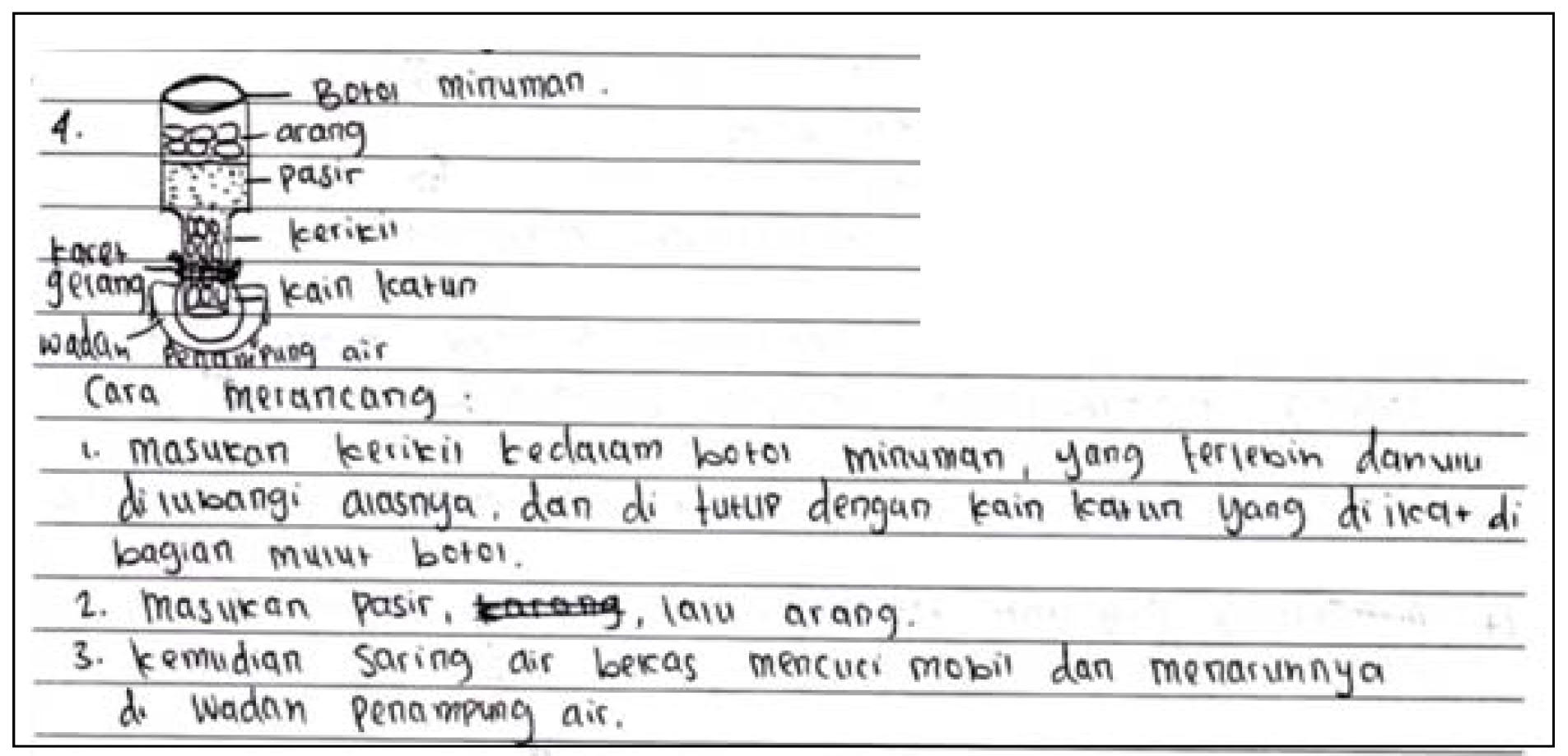Asia-Pacific Forum on Science Learning and Teaching, Volume 19, Issue 2, Article 10 (Dec., 2018) |
The results of pre-test and post-test revealed that post-test scores were higher than pre-test ones (see Table 4). This means that the worksheets-oriented instruction was quite effective in assisting grade 7 students in learning activities, as well as addressing and encouraging them to solve the problems and deliver their new generated learning experiences. This in line with Peruche’s (2007) idea addressing the spirit of learning to influence to the learning process. Hillman (2003) points out that teachers need to foster students easyly find and/or apply their own ideas. As a matter of fact, the ability of the medium category indicated a n-Gain for grade 7 students’ scientific literacy levels.
An improvement in n-Gain influences their abilities and interests of learning (Prastowo, 2015). In other words, any material (both information, tools, and texts) systematically arranges and displays students’ overall competencies as well as planning and implementing learning activities through the learning processes. The effectiveness of the worksheets-oriented instruction supported group work activities (cooperative learning) helping teachers to lead their students to discover and apply their own creative knowledge. This is also consistent with Liliasari and Tawil (2014) statement implying that teaching is not just to transfer knowledge but also to do analysis, experimentation, conclusions, and reasoning. Understanding science for all countries and state schools is seen as a major part of achieving scientific literacy (Millar & Osborne, 1998; Norris & Phillips, 2003; Toharudin, et al., 2011).
Worksheets also affect students’ emotional thinking, mental development levels, and abilities to make decisions. Effective learning activities emphasize learning scenarios to make learning meaningful and easier for students to understand. Abdulrob and Daniel (2015) states that the teaching and learning processes improve scienctific literacy. Akcay and Akcay (2015) depicts that using the STS approach-based worksheets makes learning easier for students to understand the presented material and to enable their progresses in decision-making for their lives and communities. The use of worksheets including content, process, and context of science may help students understand the materials taught in science classrooms. Karsli and Sahin (2009) state that teachers’ worksheets facilitate students’ science process skills to discover or prove the concept(s) of science.
A higher score in the experimental group than the control one (see Table 4) denoted that the students in the experimental group were more active than those in the control one. For example, the experimental group, who spoke more than the control one in every learning activity, used language more effectively than the control one. This advocates Noer’s (2016) statement on communicationrelated-socialization. The language will lead to inaccuracy and uncertainty of the gained messages. A lack of language skills may result in errors in translating the delivered materials (misconceptions). In view of Hudson (2002), reading science text(s) is more effective than recognizing all words and locates specific impormation. Further, it also involves the ability to infer meaning(s) from the text.
Given science context, the experimental and control groups had the lowest scores for n-Gain on the content and the process of science. Understanding science is important for students as the successor of the nation's generation, who will face a competition environment through the development of science and technology. The STS approach-based worksheets seems to have made the students more active. This may stem from the features of the worksheets (e.g., contextual learning) that encourage students to easily understanding concepts/scientific knowledge. The STS approach-based worksheets facilitated the students’ life applications to naturally comprehend science learning processes (Lee, 2014).
Then, Liliasari and Tawil (2014) stress that the interaction amongst science, technology, and society enhances technological development for human being. Similarly, Yager and Akcay (2008) address that emphasizing the concepts of science and technology in human life emerges a sense of students' social responsibilities towards the roles of science and technology in society. In addition, the STS approach improves students' learning outcomes and interests of science learning in all educational levels (Yoruk, et al., 2009).
As seen in Figure 3, the grade 7 students with a high n-Gain score showed the detailed pictural explanations, verbal arguments, and reasoning skills.
Figure 3.A sample response from the grade 7 students with a high n-Gain scoreAs can be seen from Figure 4, the grade 7 students with a medium n-Gain score did not provide the detailed pictural explanations, verbal arguments, and reasoning skills.
Figure 4. A sample response from the grade 7 students with a medium n-gain score
As seen from Figure 5, the grade 7 students with a low n-Gain score revealed transcription and verbal argumentation.
Figure 5. A sample response from the grade 7 students with a low n-Gain score
Three students with different n-Gain scores had various ways to answer the same questions. This means that the grade 7 students with a low n-Gain score had difficulty in comprehending and depicting the process of science. The results of the scientific investigation process indicated that the grade 7 student were able to conduct an investigation alike a scientist. Rustaman (2009) states that the process of science refers to the mental processes involving in answering a question or problem-solving (e.g., identifying and interpreting evidence) and explaining the conclusions of the scientific investigations. That is, the results pointed that the STS approach was even better in facilitating student learning of scientific knowledge than the traditional teaching. A STS approach of this study is feasible overtly exam-driven context of Hong Kong in light of its superiority in conceptual understanding over traditional teaching (Lau, 2013).
Copyright (C) 2018 EdUHK APFSLT. Volume 19, Issue 2, Article 10 (Dec., 2018). All Rights Reserved.



